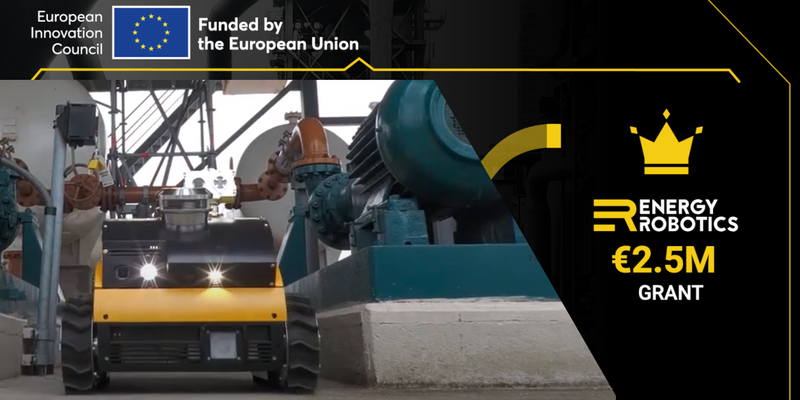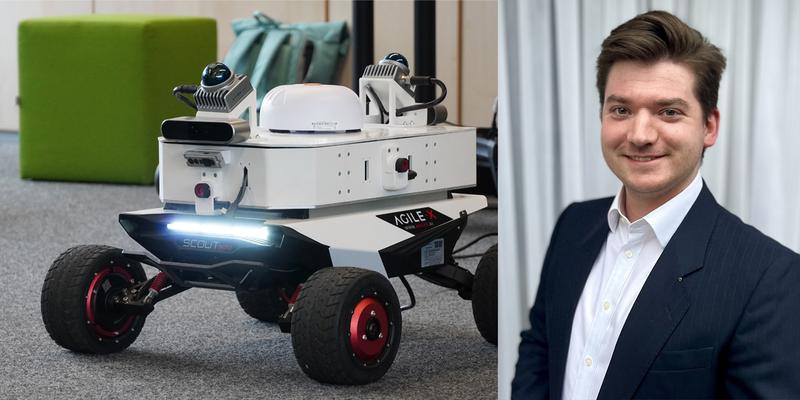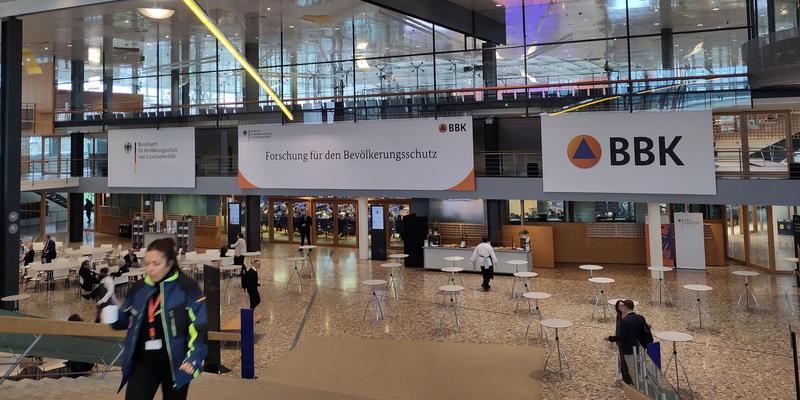“We are delighted to be selected for a €2.5 million grant under the prestigious EIC Accelerator Program!” the company Energy Robotics announced via Linked-In. With their project On the edge AI-driven Autonomous Inspection Robots, Energy Robotics convinced the selection committee of the European Innovation Council as one of 78 winners out of more than 1000 applicants. Now, Energy Robotics will receive the maximum funding of €2.5 million through the EIC’s Accelerator Programme for independent start-ups and small businesses to expand its innovative research in AI-driven rescue robots.
Energy Robotics emerged as a commercial spin-off from Team Hector of TU Darmstadt, with TU professor and emergenCITY PI Oskar von Stryk involved as co-founder. The company develops software for robot-based security checks and autonomous inspections of industrial plants, company premises and critical infrastructure. Using AI technology and cloud solutions, Energy Robotics has developed a software platform to operate and control a heterogeneous fleet of robots. These robots can autonomously collect inspection data using cameras and sensors, which are processed from raw data to actionable insights using AI, eliminating the need for humans to enter potentially dangerous areas, yet allowing users to make informed decisions about what to do.
“We are proud that the EIC committee was convinced of our business model and the innovative power of our solutions,” Marc Dassler, co-founder and CEO of Energy Robotics, stated in the official press release.
With the funding, Energy Robotic now wants to further develop its software platform to make the robots act similarly to human testing specialists in situations of deviations and anomalies. The goal is to develop robust and flexible situational awareness for the operated robots that maintains autonomous navigation and inspection even in the face of changes in the environment and unexpected incidents, based on a semantic 3D understanding of the environment. The company also wants to upgrade in the digitisation of locations and in predictive maintenance. A new backend for teaching advanced AI skills will be developed and AI-powered functions for real-time data analysis will be worked upon.
“The financial support will enable us to further develop and expand our platform to continue to be at the forefront of the transformation that autonomous robots have triggered,” Dassler summarises.



